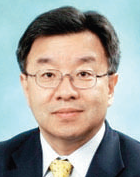
-Kim’s calculations behind a new peace offensive Kim firmly believes that the United States will not retaliate as long as it is bogged down in Iraq and Afghanistan, and also that the momentum among five parties will easily break up if he deals with each skillfully. In fact, nobody has evinced the sentiment for bilateral dialogue more clearly than President Obama. Kim still remembers clearly Obama’s campaign pledge, saying that he would be willing to talk to enemy leaders if that’s what it takes to bring about peace and reconciliation. The North will keep threatening Washington because it realizes that its coercive actions including detonating another nuclear bomb will definitely put the Obama administration’s effectiveness into question and make Obama look less credible as the commander-in-chief for the eyes of American voters at home. The North expects that President Obama would grudgingly look for a way out before mid-term election. Kim calculates that there is no alternative for the Obama administration but to engage the North. Therefore, the North will do its best to make American security planners compromise with a practical solution at the bilateral meetings. On the contrary to general perception on Lee’s hard-line attitude toward Pyongyang, the Lee government is willing to thaw the relations and reboot the North Korea’s failing economy if the North makes a strategic decision of irreversible denuclearization. President Lee explained his idea to the North Korean officials who visited the Blue House at the Kim Dae-jung’s funeral and further elaborated on it with a new concept of “grand bargain” when he spoke to the members of the Council on Foreign Relations and Korean Society in New York. He urges that the North should redirect its overall strategy before asking resumption of tourism project at Gumgang Mountain and delivery of food aids and fertilizers. As he aptly describes in his address in New York, providing a clear way out for North Korea is crucial in order for them to make a hard choice. What he would like to focus in his proposal of “grand bargain” is that we must avoid the same mistakes that we have done before.
At least four additional points need to be addressed: 1) Any attempt to restore bilateral relations with North will be made with extreme caution; 2) It must not hamper the spirit made by UNSC Resolutions 1874 and 1718 until it is verified in a irreversible way; 3) Seoul’s position toward North Korea’s denuclearization must remain unchanged; 4) non-proliferation and denuclearization cannot be dealt separately.


